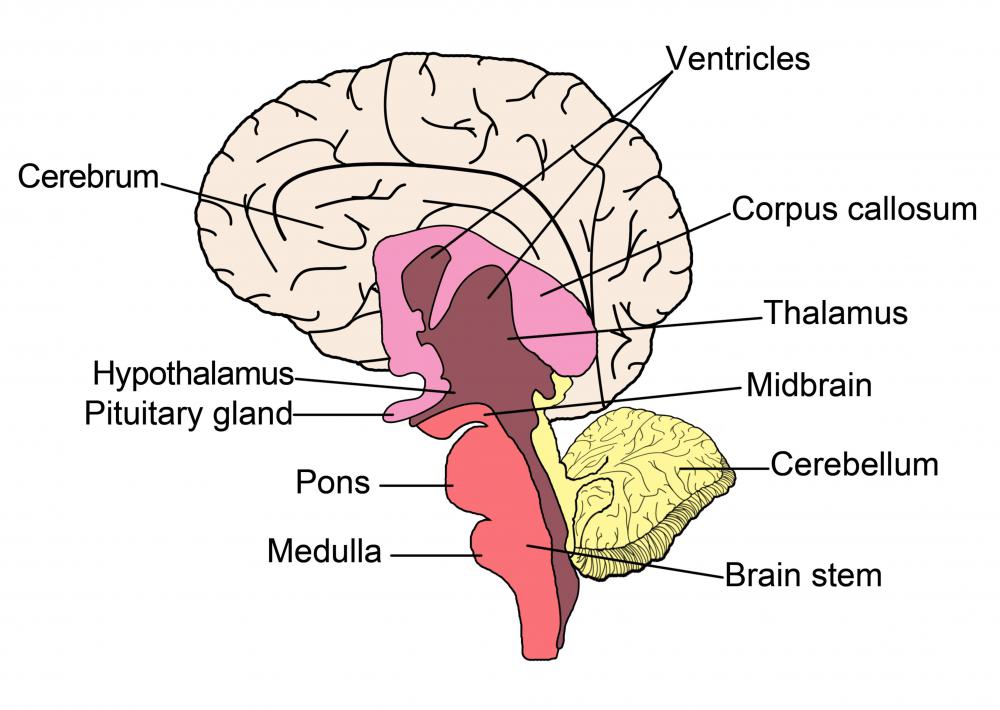At WiseGEEK, we're committed to delivering accurate, trustworthy information. Our expert-authored content is rigorously fact-checked and sourced from credible authorities. Discover how we uphold the highest standards in providing you with reliable knowledge.
What Is the Role of the Pituitary Gland?
The role of the pituitary gland is to secrete hormones that regulate bodily processes and maintain homeostasis, or stable function. This gland, which is approximately the size of a pea, is located just below the brain and consists of two major parts: the anterior and posterior lobes. A structure called the pituitary stalk connects it to the hypothalamus, an area of the brain. Hormones produced by this gland include growth hormone, thyroid stimulating hormone, oxytocin, and gonadotropins. Disorders or tumors affecting this area can result in a number of diseases involving hormonal imbalance.
The anterior lobe of the pituitary gland secretes several major hormones, including growth hormone, thyroid stimulating hormone, and gonadotropins. Growth hormone controls body growth, especially during childhood. Thyroid stimulating hormone regulates the function of the thyroid gland, which in turn controls body metabolism. Gonadotropins include sex hormones that regulate the production of estrogen in women and testosterone in men.

The other region of the pituitary gland is the posterior lobe. This part of the gland secretes a kidney hormone that controls the conservation of body water. It also secretes oxytocin, which is important in reproductive functions. Although oxytocin is a component of both male and female reproductive systems, it is especially important for women, as it regulates contractions during the birth process and the secretion of milk.

Hormones synthesized and generated by the pituitary gland are essential in helping the body maintain homeostasis — the correct and stable functioning of bodily systems. These chemicals trigger events in the body that allow it to respond to stimuli in its environment. They also regulate the growth and development of the body during childhood and adolescence. The pituitary gland effectively controls all other glands of the endocrine system, making it a vital part of the body.

Since this gland plays such a fundamental role in maintaining bodily function, its malfunction can easily cause disease. The secretion of too much or not enough of a given hormone is often enough to knock the entire body out of balance. For example, children who suffer from a lack of growth hormone production may fail to reach a certain stature. Sexual characteristics and function may be reduced by gonadotropin deficiency.

Other disorders, such as Cushing’s disease and gigantism, are caused by the overabundance of a certain hormone. Cushing’s disease occurs when the pituitary gland secretes too much adrenocorticotropic hormone, which leads to the release of a stress hormone known as cortisol. Gigantism is caused by a tumor of the pituitary gland, which results in too much growth hormone being released. Those with gigantism are much taller than the average person and often suffer physical problems.
AS FEATURED ON:
AS FEATURED ON:
















Discuss this Article
Post your comments